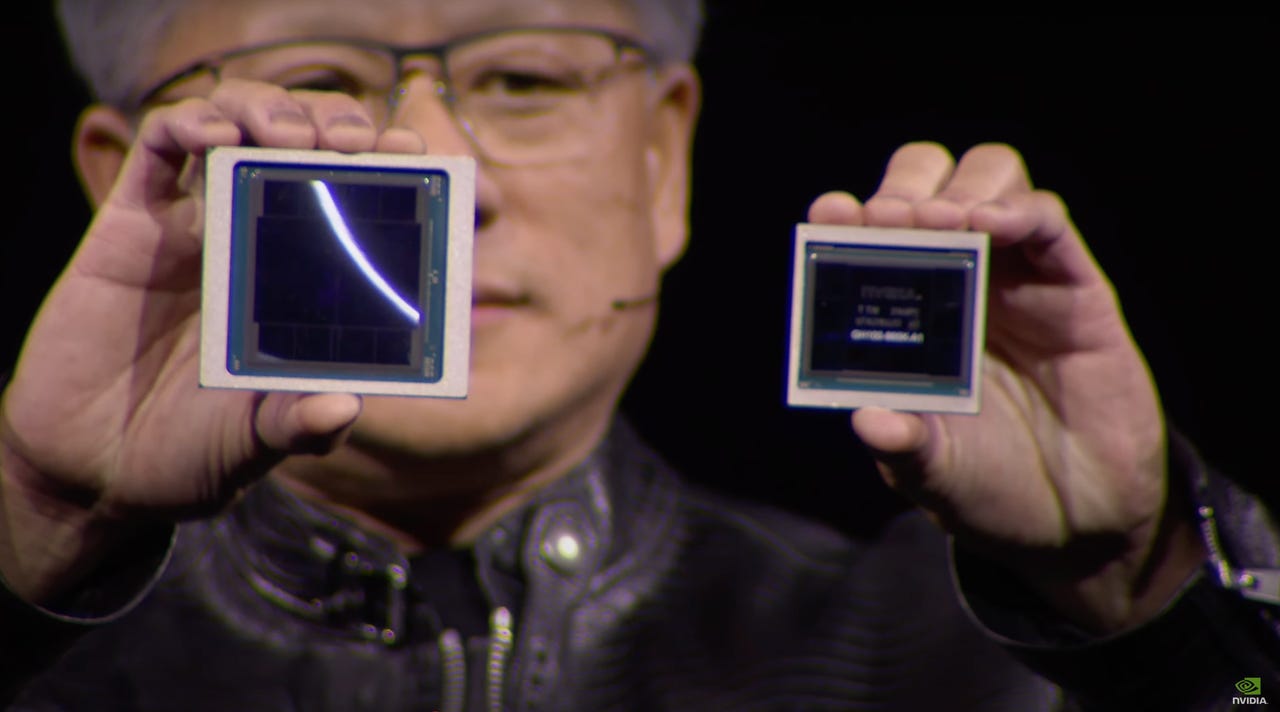
































Jensen Huang, Nvidia CEO, shows the new Blackwell GPU chip (left).
This week's Innovation Index continued to be AI top-heavy with AI-related topics taking three of the top four spots again -- and it was further dominated by some of the largest tech companies in the world and the company that's now synonymous with generative AI.
To recap, the Innovation Index highlights the top trends in tech based on a vote from our panel of journalists and analysts. We're especially looking for the developments that are the most innovative and will have the biggest impact on the future. 's editorial leaders narrow down the top 10 trends of the week and then our panel votes to rank the top four. If you're not familiar, here's the link to last week's report as well as the inaugural report two weeks ago.
This week's leading trends were:
Our panel's runaway top pick this week was the new Nvidia GPU that's expected to speed up the large language models that power generative AI by as much as 25 times. Speaking of LLMs, the next big one from market leader OpenAI is going to be GPT-5 and the company is already telegraphing that we should expect it to include some new superpowers to automate tasks with AI agents. Not to left out of the AI party, Microsoft took the wraps off its flagship laptop and 2-in-1 tablet that will have a neural processing unit to optimize for AI-related tasks.
And finally, the one non-AI item on this week's list is Google's big redesign of how health conditions are displayed in search results. This is a lot bigger than it sounds since so many people start their health journey on Google when they are having problems or looking to improve something about their health. I have a number of friends who are physicians and they often refer to patients coming in after being told health information of various levels of reliability by "Dr. Google."
Alright, that's it for this week. Check back next week for the latest set of trends.
 Tags quentes :
Inovação
Tags quentes :
Inovação